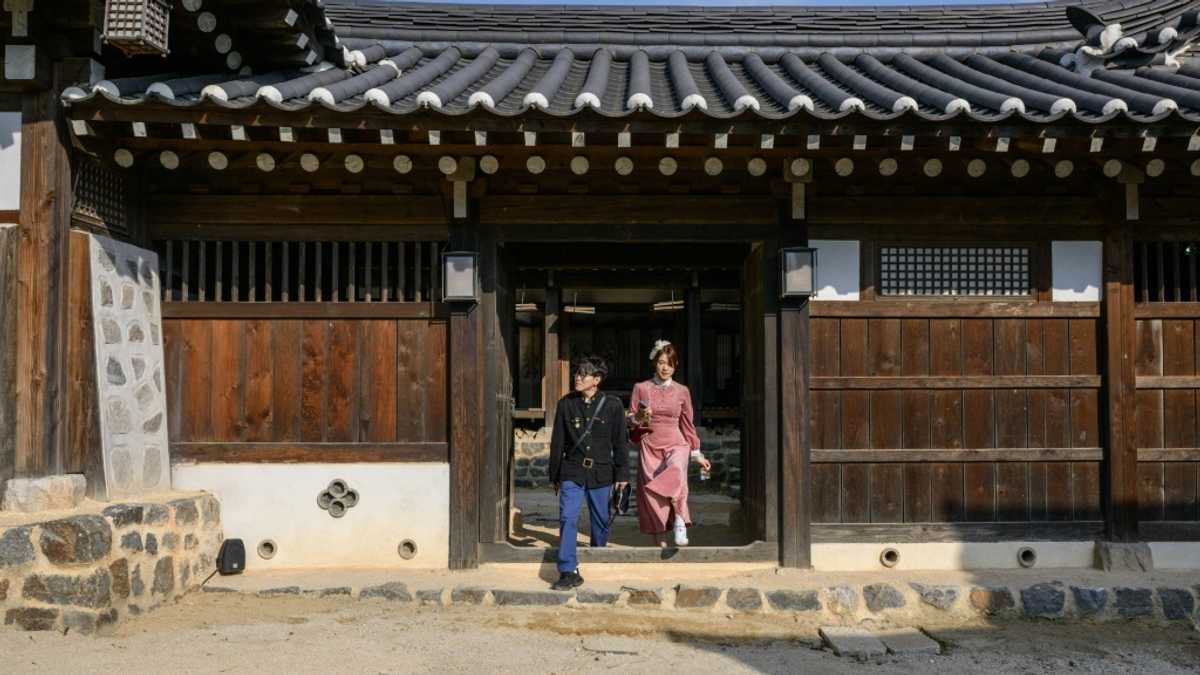Just weeks after arriving in the Northern Territory as a seasonal worker, Samoan woman Tavai Tofaeono already considers Australia her second home.
The 34-year-old arrived in Darwin in September and works at a packing shed in Berry Springs, where she has been picking and sorting mangoes.
“Life in Samoa is really tough,” she said. “I have a lot of family … I am supporting them.
“The company we working [for] … we love their hospitality. The way they treat us Samoans is why we don’t want to go back to Samoa … Australia is like a second family to us.”
Around 380 seasonal workers from Vanuatu and Samoa have arrived in Darwin since August to help boost the Territory’s mango-picking workforce for this year’s harvest.
They joined about 160 seasonal workers from Vanuatu who arrived in September last year, as part of a trial program.
Red Rich Fruits’ farming operations manager, Tim Teague, said Pacific workers have filled a crucial labour shortage caused by dwindling backpacker numbers during the COVID-19 pandemic.
“They’re vital … seasons wouldn’t be possible without them at the moment,” Mr Teague said.
“[Backpackers] can pick and choose where they work and we just don’t have the numbers available to fill workforces.”
ABC News: Che Chorley
)Costly, time-consuming exercise
The Northern Territory Farmers Association (NTFA) has estimated the flights and quarantine expenses for each worker has cost the industry about $1.5 million.
It said almost 12 months of negotiations were necessary to bring the workers to Australia, with approvals required from the Northern Territory government, the Commonwealth and the governments of Vanuatu and Samoa.
“Some of the countries we were talking to initially had COVID outbreaks, so we had to restart the negotiation process with a new country,” NTFA chief executive Paul Burke said.
“We landed on Vanuatu and Samoa as relatively safe and stable.”
ABC News: Che Chorley
)A group of Ni-Vanuatu seasonal workers who arrived for a trial program last year and had their visas extended have also been able to work in other states.
“Because we’ve had such a shortfall of work, most of them have been fully occupied,” Mr Burke said.
“Workers [who] came through the Northern Territory on the pilot program have worked in Western Australia, Queensland and they’ve worked in Tasmania.”
NTFA has plans for more seasonal workers to arrive in Darwin in the coming months, with Timor Leste flagged as a possible source of labour.
“We’re currently planning for more [workers] to arrive early in the New Year to support the melon industry,” Mr Burke said.
Bill Frazer Alling came to Darwin from Vanuatu as part of the trial seasonal worker program last year.
He currently packs mangoes at a shed in Darwin’s rural area, where seasonal workers are paid around $25.41 an hour.
The 36-year-old said he had been working to support his family abroad and hoped to establish his own business in Vanuatu.
ABC News: Che Chorley
)“I’ve got two kids and my girlfriend … I’m supporting them financially,” Mr Alling said.
“I am still happy to stay here in Australia and work.”
This week, the federal government announced the creation of a new agriculture visa, in response to workforce shortages in the agriculture and primary industry sectors.
The government has said it would provide for the entry and temporary stay of workers across primary industries sectors.
“The ag visa will provide a long-term, reliable workforce for our critical industries,” Agriculture Minister David Littleproud said.
“It will be open to applicants from a range of countries and we are already in talks with a number of countries in our region who are eager to participate.”
Mr Littleproud said the visa would supplement the existing Pacific Australia Labour Mobility Scheme (PALM Scheme).
“It will complement the Pacific programs we have got in place, which have been critical in supporting our primary industries to date,” he said.
“The Pacific will remain the key pathway for the sector to access workers for this harvest, with the government committing to double the number of Pacific workers in Australia by March 2022.”
He said the final program design was being developed in consultation with industry.
Note: This article have been indexed to our site. We do not claim ownership or copyright of any of the content above. To see the article at original source Click Here













